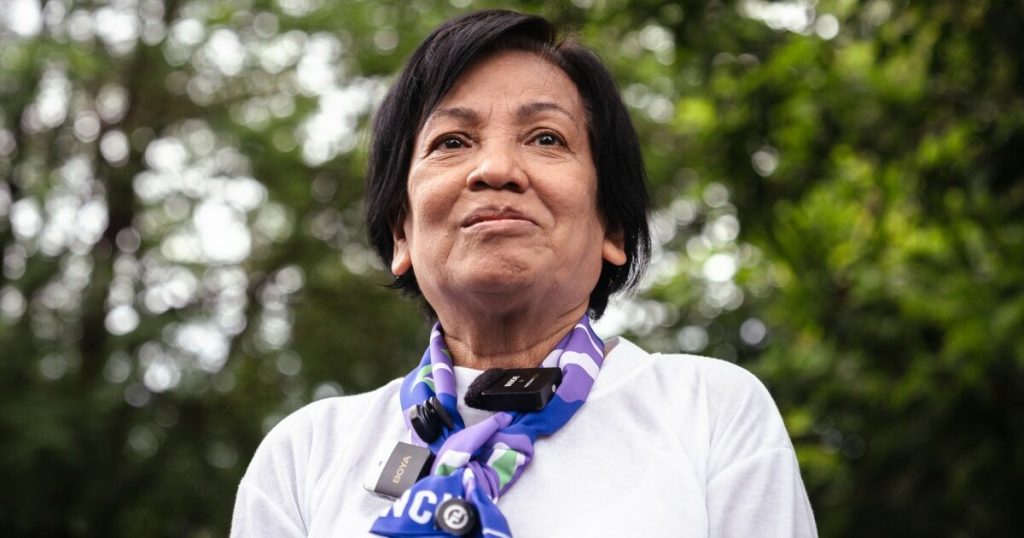Anchan Preelert, a 69-year-old Thai woman, tasted freedom on Wednesday after spending eight years incarcerated under Thailand’s stringent lese-majeste law. Her release, part of a royal pardon marking the King’s birthday, brought an end to one of the kingdom’s longest sentences ever imposed for insulting the monarchy. Anchan’s ordeal began in 2015 under the then-military government, culminating in a 2021 conviction for sharing audio clips on YouTube from an anti-monarchy podcast. Initially sentenced to a staggering 87 years, her term was later halved to 43 years due to her confession. This case highlights the controversial nature of Thailand’s lese-majeste law, Article 112, which criminalizes any perceived criticism of the royal family, with penalties of up to 15 years per offense.
Anchan’s crime stemmed from sharing 29 online audio clips deemed critical of the monarchy. Each instance was treated as a separate offense under Article 112, leading to the accumulation of her lengthy sentence. At the time of her sentencing, it was the longest ever recorded for lese-majeste, later surpassed by another individual sentenced to over 50 years for Facebook posts. The law’s harsh application and the potential for cumulative charges underscore the chilling effect it has on freedom of expression in Thailand, as critics and human rights organizations argue.
The royal pardon that led to Anchan’s release extended to 84 other inmates at the Central Women’s Correctional Institution in Bangkok. Emerging from prison, Anchan was met with a warm welcome from supporters bearing flowers and signs proclaiming “Welcome Home.” Her visible emotion and words, expressing the bitterness of her eight-year confinement, underscored the personal toll exacted by the lese-majeste law. The pardon provided a glimmer of hope amidst a broader climate of restricted free speech in Thailand, where numerous individuals have faced charges related to royal defamation.
Anchan’s release, while offering a moment of reprieve, comes against the backdrop of a recent legislative setback. Just last month, Thai lawmakers rejected a proposed amnesty bill for those convicted of royal insults, a move widely criticized by human rights organizations. This rejection underscores the ongoing challenges faced by those advocating for reform of the lese-majeste law and for greater freedom of expression in Thailand. The incident also highlighted the precarious situation of political prisoners in the country and the continuing tension between protecting the monarchy and upholding fundamental rights.
Over the past five years, Thailand has witnessed a surge in lese-majeste prosecutions, with over 280 cases recorded. This increase is particularly notable following the 2020 student-led pro-democracy protests, which included unprecedented public criticism of the monarchy. These protests, fueled by demands for greater political freedoms and reform of the monarchy’s role, placed the lese-majeste law under increased scrutiny. The high number of prosecutions highlights the government’s perceived sensitivity to such critiques and its willingness to utilize the law to suppress dissent.
Human rights groups like Amnesty International welcomed Anchan’s release as a rare positive development for political prisoners in Thailand. They, along with other organizations, continue to advocate for reform or repeal of the lese-majeste law, arguing that its vague wording and harsh penalties are used to stifle legitimate political discourse and dissent. The law’s broad interpretation, which can encompass a wide range of expressions, creates an environment of fear and self-censorship, impacting not only activists and critics but also ordinary citizens. The debate surrounding Article 112 remains a crucial element in the ongoing struggle for greater political freedoms and human rights in Thailand.














